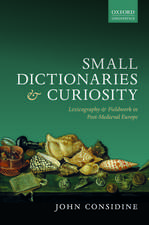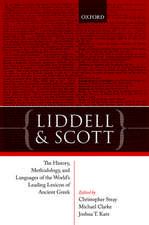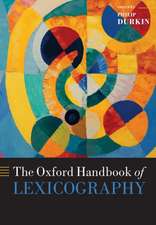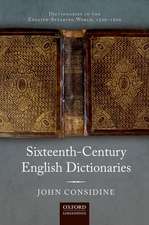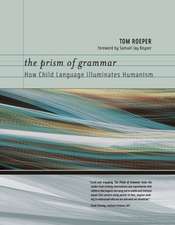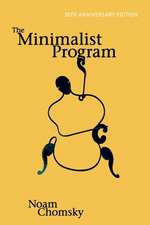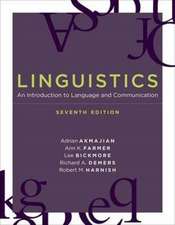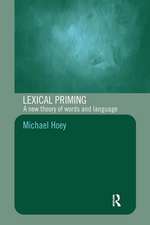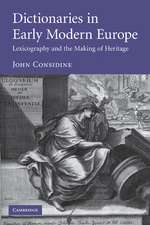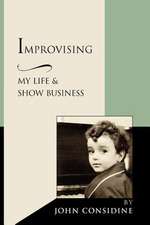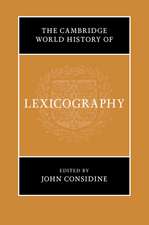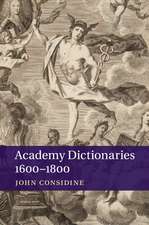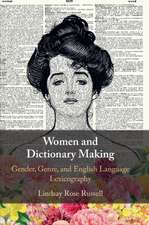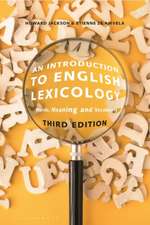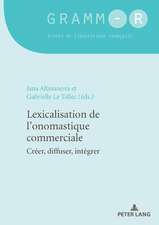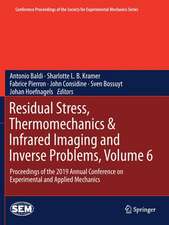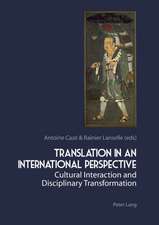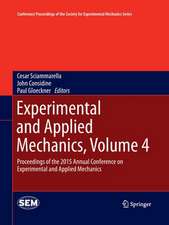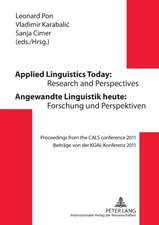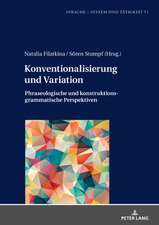Ashgate Critical Essays on Early English Lexicographers: Volume 4: The Seventeenth Century: Ashgate Critical Essays on Early English Lexicographers
Editat de John Considineen Limba Engleză Paperback – 14 oct 2024
| Toate formatele și edițiile | Preț | Express |
|---|---|---|
| Paperback (1) | 228.56 lei 6-8 săpt. | |
| Taylor & Francis – 14 oct 2024 | 228.56 lei 6-8 săpt. | |
| Hardback (1) | 1698.66 lei 6-8 săpt. | |
| Taylor & Francis – 28 iul 2012 | 1698.66 lei 6-8 săpt. |
Preț: 228.56 lei
Preț vechi: 265.17 lei
-14% Nou
Puncte Express: 343
Preț estimativ în valută:
43.73€ • 45.79$ • 36.19£
43.73€ • 45.79$ • 36.19£
Carte tipărită la comandă
Livrare economică 05-19 aprilie
Preluare comenzi: 021 569.72.76
Specificații
ISBN-13: 9781032918525
ISBN-10: 1032918527
Pagini: 578
Dimensiuni: 174 x 246 mm
Greutate: 1.07 kg
Ediția:1
Editura: Taylor & Francis
Colecția Routledge
Seria Ashgate Critical Essays on Early English Lexicographers
Locul publicării:Oxford, United Kingdom
ISBN-10: 1032918527
Pagini: 578
Dimensiuni: 174 x 246 mm
Greutate: 1.07 kg
Ediția:1
Editura: Taylor & Francis
Colecția Routledge
Seria Ashgate Critical Essays on Early English Lexicographers
Locul publicării:Oxford, United Kingdom
Public țintă
AcademicNotă biografică
John Considine is Associate Professor of English at the University of Alberta, Canada
Cuprins
Contents: Introduction; Part I Background: Lexicography in the early modern English period: the manuscript record, Ian Lancashire; Motives behind 17th century lexicography: a comparison between German and English dictionaries of that time, Werner Hüllen; The early modern English tradition of ’hard words’ and the Vindex anglicus (1644), Gerhard Graband; Defining English: authenticity and standardization in 17th-century dictionaries, Andrea R. Nagy; Dictionary English and the female tongue, Juliet Fleming. Part II Overview: The beginnings of English lexicography, Allen Walker Read; The beginning: English dictionaries of the first half of the 17th century, James A. Riddell. Part III Individual Dictionaries: What were Robert Cawdrey's hard words? Learned terms and A Table Alphabeticall (1604), R.W. McConchie; Women and the Godly art of rhetoric: Robert Cawdrey's Puritan dictionary, Sylvia Brown; The historical significance of Cockeram's treatment of verbs of high frequency, Kusujiro Miyoshi; The working methods of Thomas Blount, Jürgen Schäfer; Authenticating the vocabulary: a study in 17th-century lexicographical practice, N.E. Osselton; Thomas Dawks's The Complete English-Man (1685): a newly-discovered 17th-century dictionary?, Edwina Burness. Part IV Encyclopedic Historical and Specialized Dictionaries of English: Captain John Smith's Sea Grammar and its debt to Sir Henry Mainwaring's 'Seaman's Dictionary', P.L. Barbour; 'New World of English Words': John Ray, FRS, the dialect protagonist, in the context of his times (1658-1691), Jo Gladstone; Theory meets empiricism: English Lexis in John Wilkins' philosophical language and the role of William Lloyd, Gabriele Knappe; A Physical Dictionary (1657): the first English medical dictionary, Jukka Tyrkkö. Part V Bilingual and Polyglot Dictionaries: The lexicography of the learned languages in 17th-century England, John Considine; Wordlists of exotic languages in 17th-century England, John Considine; The French-Engl
Descriere
Three major developments in English lexicography took place during the seventeenth century: the emergence of the first free standing monolingual English dictionaries; the making of new kinds of English lexicons that investigated dialect or etymology or that keyed English to invented 'philosophical' languages; and the massive expansion of bilingual





